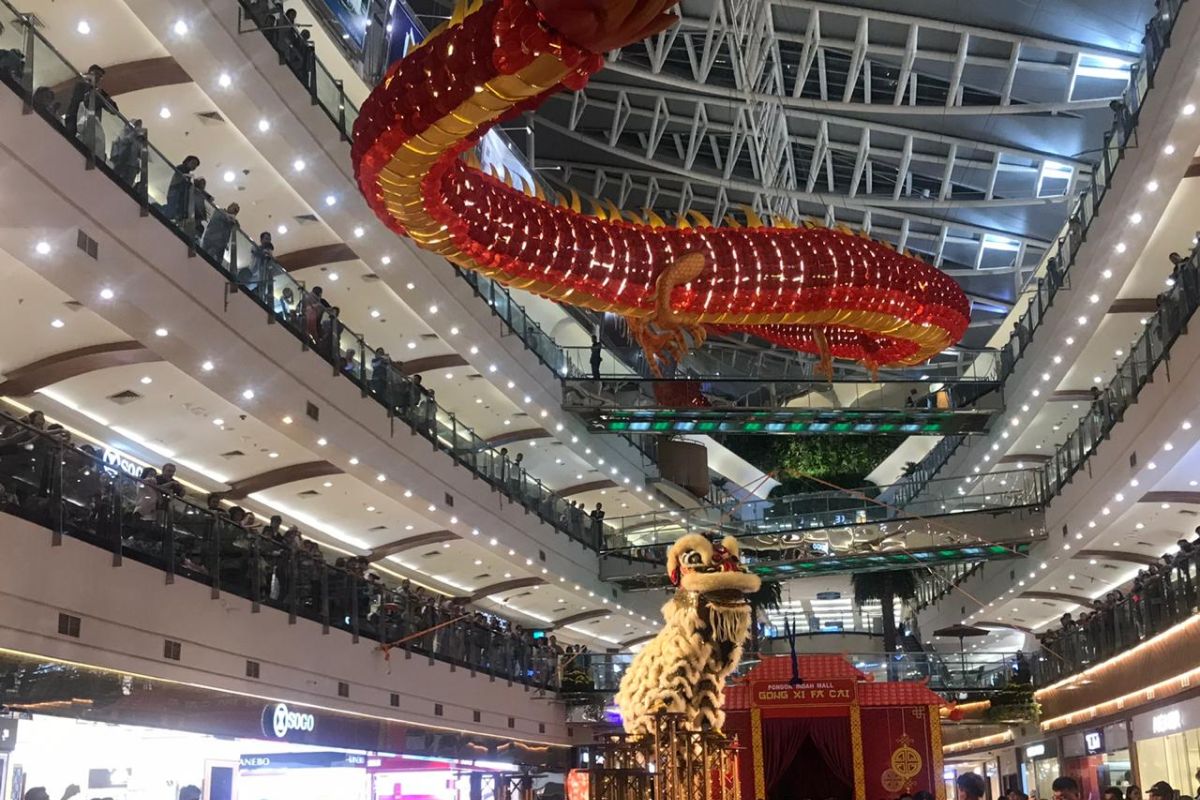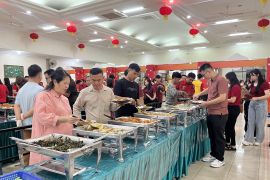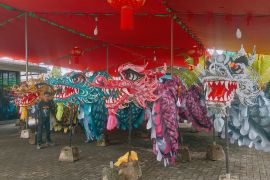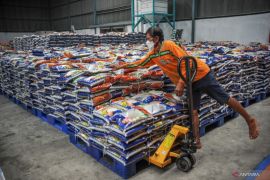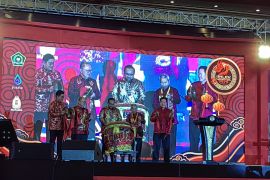As an Indonesian, I am very proud of the fact that our community is essentially a melting pot of cultures and ethnic traditionsJakarta (ANTARA) - The town has been painted red, quite literally, symbolizing good fortune, luck, abundance, and joy to enliven the 2571 Chinese New Year celebrations in Indonesia’s capital city, Jakarta.
Every inch of the city appears to be adorned, with Chinese lion dancers performing in almost every corner, while shopping malls and recreation centers resound with the tunes of oriental songs repeatedly.
To Christine Aalce, owner and founder of the Indonesian artisan natural skincare business Semesta, Chinese New Year holds a special place in her life, as it gives her the opportunity to hold the same spirit and essence for the local Chinese community.
“Growing up in Singapore, Chinese New Year was always this huge affair for everyone. The lanterns, the food, the crimson red decorations being exhibited in the shops and throughout the streets; Chinese New Year carried such a loud vibrancy,” she told ANTARA.
Aalce, who currently resides and conducts her business in Jakarta, had created special merchandise to contribute to the festivities of the celebration. They are delicate, small-sized soaps molded into the shapes of moon cakes, the iconic sweet delicacies that can often be found all around the city during Chinese New Year.
Made of natural coconut, lavender, and vanilla essence, the soaps are wrapped in packaging also resembling that of the moon cake. To her, the product, marketed through online platform, holds more than mere business value.
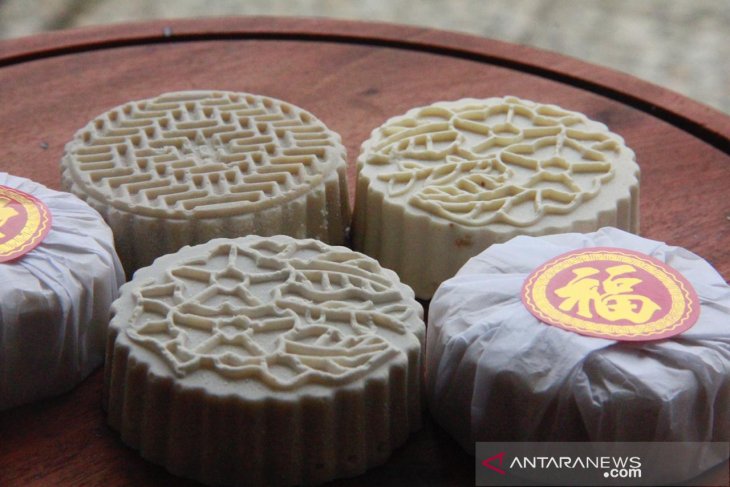
Undeniably, the Lunar New Year celebrations have transcended traditional and religious values, to become a part of Jakarta’s culture and its citizens hailing from varying backgrounds. Since being recognized as a national holiday in Indonesia, one and all have begun participating in the celebrations.
“I have been really touched by the reactions (to the CNY product). I have received requests from people, who weren’t necessarily celebrating the New Year themselves but had intentions of gifting their close friends or co-workers who were,” she pointed out.
As part of the city’s culture, Aalce’s story depicts a small part of how Jakartans celebrate the festivities of Lunar New Year. Moon cakes, lanterns, and red envelopes are sold at most supermarkets and specialty shops. Some stores will offer special discounts on account of the New Year.
Families go out to bask in the festivities or stay at home and savor a downtime. With or without Chinese ethnicity running in their blood; everyone gets to take the day off.
Public spaces
Some shopping malls will also install extravagant decorations and bring in Chinese lion dance performances to further add to the festivities around the New Year.
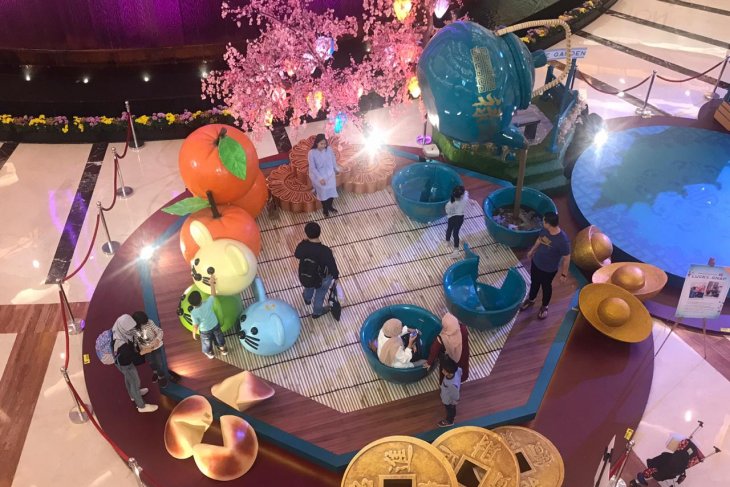
Ronald Sjarif, chairman of the Kong Ha Hong lion dance group, expressed optimism that all would enjoy the performance regardless of their backgrounds, as his group has always embraced such diversity within themselves.
“Members of our group are from different backgrounds. We welcome anyone, who would like to train with us, and I never ask them what their racial, religious, or tribal backgrounds are,” he remarked after one of his group’s performances.
As the lion character, enacted often by two people, who move with sheer agility on the poles being set up, the rest of the group play instruments to go along with the dance. Mall visitors, including young children, are left awestruck by the performance that does not come around every day.
After a few minutes of performing on the poles to the tune of oriental songs from instruments, the lion is joined by another one on the floor, and they both perform dances in accordance with other songs, although this time, the songs are more contemporary, such as the Asian Games theme song, as well as “Baby Shark” popular among children as well as songs from South Korean music groups.
The acculturation once again depicts the way that cultures have melted and merged in Jakarta, as one of the mall visitors, 35-year-old Selvia, said that she took her two children to the mall to witness the lion dance.
“It is really great to see that the performance incorporated songs that are familiar to everyone. We thoroughly enjoyed the show with all the songs. We could feel the festivities, and the children also loved the performance,” she noted.
Through the years, shopping malls have been known to go all out on festive activities for all the holidays, including the Chinese New Year. This year, however, the New Year spirit can also be seen down on the city’s streets.
The Jakarta provincial government had set up performances of another type of a Chinese dragon dance, known as the Liong, in the area of the Hotel Indonesia Roundabout (Bundaran HI). The performance is combined with shows of Gambang Kromong music that is unique to the Betawi tribe.
Head of Jakarta Government’s Education and Spiritual Mental Bureau, Hendra Hidayat, noted that the government supports the showcasing of Chinese cultures at several spaces in Jakarta, with the objective of reintroducing them to the public.
“We would like to bring the celebration and spirit to the public. Usually, we could only find festivities and the spirit of Chinese New Year in temples, monasteries, as well as shopping malls,” he noted, adding that the provincial government also encouraged one and all in the city to enliven the celebrations.
The spirit of Lunar New Year can be one of the manifestations of Indonesia’s national motto ”Bhinneka Tunggal Ika,” or Unity in Diversity, as the city welcomes the year of 2571, the Year of the Rat.
Related news: Inside the centuries-old temple in Jakarta on Lunar New Year
Related news: Jakarta caps Lunar NY with lion dances, festivities
Editor: Gusti Nur Cahya Aryani
Copyright © ANTARA 2020
